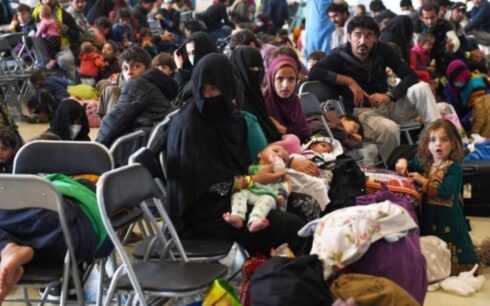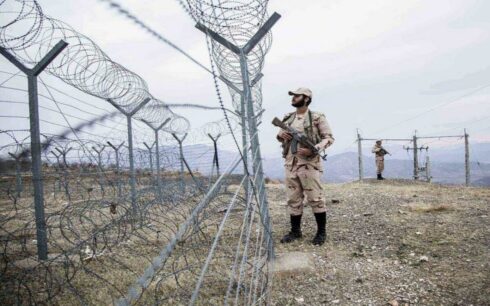Taliban leader Hibatullah Akhunzada has said that global pressures on the group – over its restrictions on women’s rights in Afghanistan – “would not leave an impact” but it will and has increased a lack of trust environment in their relationship with the world, two sources aware of the matter said on Friday.
The remarks were made by Hibatullah in a meeting in Kandahar with commanders of the Taliban corps on Thursday, the sources said.
Taliban in a statement confirmed the meeting and said Hibatullah has stressed the need for the implementation of the Sharia law by the commanders in their activities.
The sources said the commanders have called for reforms in their ranks and an increase in financial support and facilities.
More details were not out from Hibatullah’s meeting in Kandahar where a UN delegation met last month with Taliban officials, asking them to allow women to resume their work at non-governmental organizations.
In over one and a half years of its rule in Afghanistan, the Taliban under the decrees of Hibatullah has banned women from attending universities, working in NGOs, attending public places and girls from secondary schools.
The group this week banned female students from attending entrance exams for enrolment at private universities.
Taliban’s ban on women aid workers led to the suspension of operations of many major aid agencies. Some aid organizations, including Save the Children and CARE, resumed parts of their activities in health and nutrition but have called for the full participation of women in aid operations to help those in need.
Ned Price, the US State Department’s spokesman, at a press briefing on Thursday said the Taliban cannot expect the respect and support of the international community until they respect the human rights and fundamental freedoms of all Afghans, including women and girls.
“We seek to make very clear to the Taliban that it cannot have it both ways, that it can fail to uphold its commitments to the Afghan people and thereby close all avenues of opportunity for improved relations,” Price said.
Meanwhile, the European Union special envoy for Afghanistan, Tomas Niklasson, in a tweet on Thursday said he had three days of meetings with Pakistani officials where they discussed “consequences of the Taliban’s decision to prevent millions of Afghans from accessing humanitarian assistance by banning Afghan women from NGO work.”
“The Taliban’s ban will hit Afghans most in need, in particular women and children, at the worst possible time. We also discussed the need for inclusive government and to protect human rights and freedoms,” Niklasson said.
“While we do not wish to isolate Afghanistan, recognition of the Taliban regime is not on the table,” the EU envoy said. “We agreed on the need for the region and the broader international community to continue working together for the benefits of the people of Afghanistan.”





